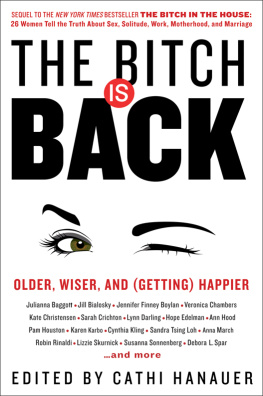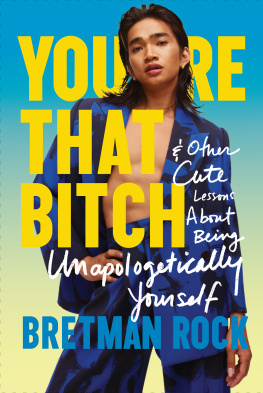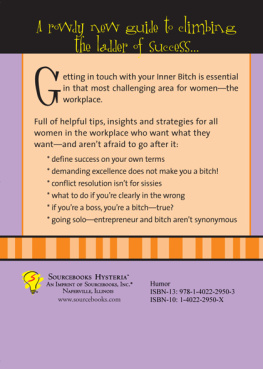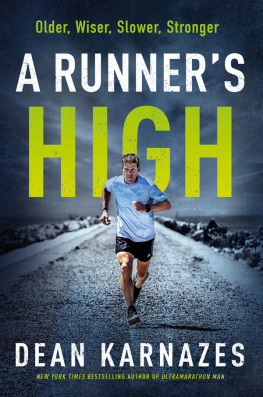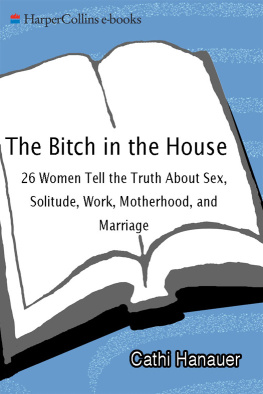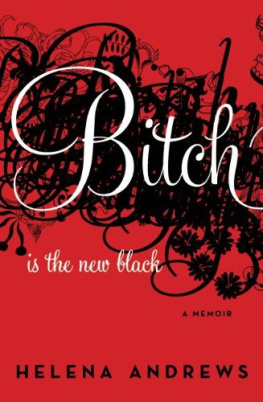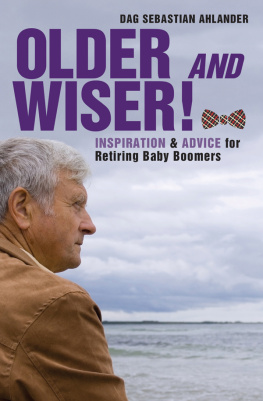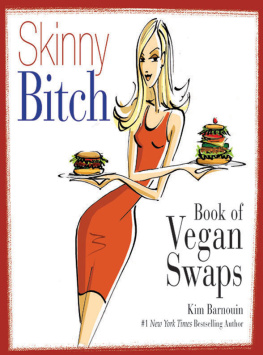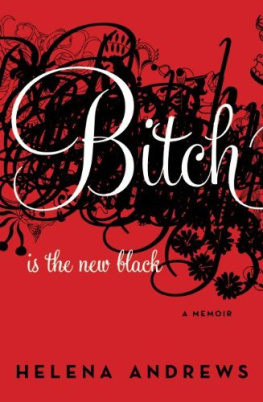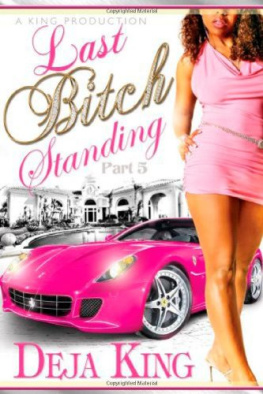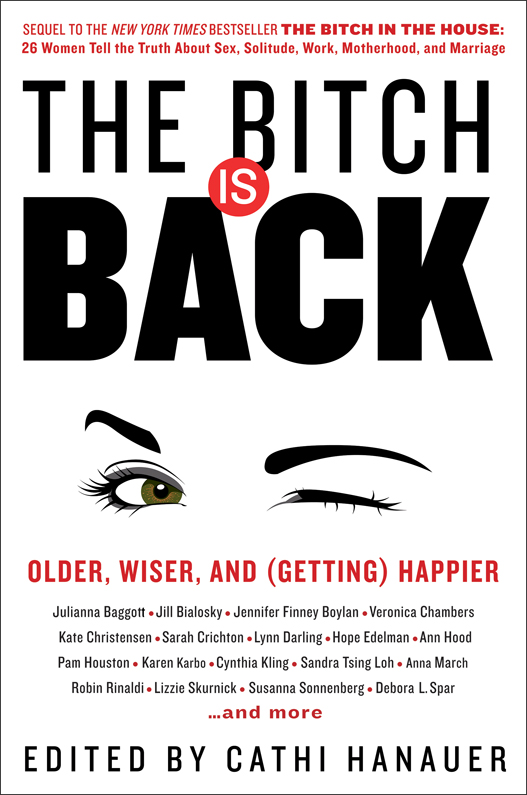For Dan, still my favorite bastard
But now I know the things I know,
And do the things I do;
And if you do not like me so,
To hell, my love, with you!
DOROTHY PARKER
Truth is the only safe ground to stand on.
ELIZABETH CADY STANTON
CONTENTS
Guide
A bout ten years ago, while on a paperback tour for my second novel, Sweet Ruin, I slid into my assigned aisle airplane seat and immediately became aware of the couple next to me in the window and middle spots. Ill call them Jack and Jill. Both were tall, blond, and attractive, if, like me, approaching middle age: He had the telltale extra pound or two in the gut, her face was slightly creased. Nonetheless, they had the distinct aura of two sixteen-year-olds newly in love. He teased, she giggled; he leaned over her to look out the window, her hand rested on his arm. As I satapparently on one part of his seat belthe made a joke to me (but clearly for her benefit) about my not thinking him rude if he retrieved it. She laughed, he joked again, this time to herHey, it was your idea for me to sit in the middleI joked back to themYou guys want me to go somewhere else so you can have some privacy here?they both laughedYeah, would you?and since the flight was packed and I couldnt actually move, we were off to a promising start for a writer always on the hunt for a good story. By the time we landed, I had theirs.
Jill was heading into her mid-forties, as I too was then. Unlike me, though, she had adult children (I had young ones), two young grandchildren, and a joyless, stifling, outdated marriage toas you may have guessed by nowa man other than the one sitting next to her. She wanted to leave, and her husband knew that (and didnt want the same), but so far they hadnt divorced. Jack too was in an unhappy marriage. His wife hadnt wanted to have sex with him for years, though sometimes she did anyway, and he had cheated on her before; they had, he said, a dont ask, dont tell policy. Like Jill, he wanted to leave, but he had a ten-year-old son and didnt want to miss out on his sons childhood or pay alimony, especially when hed funded his wife going back to school and, now graduated, she still hadnt returned to work.
Jack and Jill had met through their jobs. One thing had led to another, and now they were enmeshed in a full-blown affair, taking every chance they had to flee or hide out together. They spoke wistfully about when they might be with each other openly; she confessed that she cried sometimes when they parted, deciding shed have to end this, as it was too hard to always have to say good-bye.
While they talked to me, they each ordered a drink from the cart, and then another, lowering the shade against the bright sun. Uninvited, she sloppily poured his beer into his plastic cup with about three inches of foam on the top, and they both cracked up, giddy with alcohol and lust, no doubt imagining the fun theyd have this week away from their spouses. At the end of the flight, I wished them good luck, and they promised to e-mail and fill me in on what happened.
Which they did. More about them in a bit.

Several years before thatjust about fifteen years ago, nowI conceived and eventually edited a book of essays called The Bitch in the House: 26 Women Tell the Truth about Sex, Solitude, Work, Motherhood, and Marriage. The contributors ranged in age from twenty-four to seventy-six, but the bulk of the book, and what ultimately made it a bestseller (and propelled me, to my amusement, into a person who can walk into my local bookstore and have the employees gleefully yell, The bitch is in the house!) were the essays by my then-thirtysomething female peers, women juggling serious careerscareers in which they often significantly outearned their boyfriends or husbandswhile still, they felt, shouldering the bulk of the domestic, social, and parenting burden.
The overriding tone of the book was anger and dissatisfaction. Feminism, I posited, had opened the doors for the women of my generation to be educated and have careers on a level with men, to support ourselves and climb job ladders in our twenties, to fully anticipate fulfilling and lucrative professions in which we contributed a comparable or superior share of the family income, and to have the help, once we married and (especially) had children, of an equal domestic partner and co-parent in all of it. We picked sensitive, intelligent men who accepted and benefited from us as peersintellectually, financially, and otherwise. But when the babies arrived, whether because they couldnt, because they wouldnt, and/or because society or we ourselves wouldnt let them, many of these men were not contributing what we working women perceived as their half. As a result, we were exhausted, disillusioned, resentful, and angry at our husbands. We felt guilty at work and guilty at home and much preferred sleep to sex. We were tired of juggling and running ourselves ragged, but there seemed to be no other way; with families that now relied on our income, careers that defined us, and few role models for how to do it all, we had no choice but to carry on.
And so we did, but often not as graciously or contentedly as we wanted to or felt we should. We were the bitch in the housethe opposite of the angel in the house made famous by Virginia Woolf in a speech (a woman so selflessly devoted to her children and husband that if there was chicken for dinner she took the lesser pieces for herself; if there was a draft in the room, she sat in it). And, as I learned from the response to the book, there were a lot of us bitches out there.
I published The Bitch in the House in 2002 and rode that wave for a while, and then I wrote and published the aforementioned second novel, Sweet Ruin, the story of a suburban couple with a young daughter in which the wife commits adultery. (I call it my midlife crisis novel.) And as time passed, as my own kids grew up and our family had a steadier income and life calmed down and I became, for the most part, much less angry, I began to think about doing a sequel to Bitch, something to reflect what happens later, after those frantic, demanding, exhausting years with work and very young kids and, sometimes, not enough money. But I wasnt sure exactly what it should be, so I filed away the idea.
Which brings me back to Jack and Jill on that plane, who I met during those relatively calm, less bitchy years. Their story didnt shock or surprise me; in fact, it was like a play-by-play slice of at least some of what I was seeing, hearing, and inferring around me at that time. The very night before, the mostly female audience of thirty- and early fortysomethings at the bookstore where Id read from Sweet Ruin had, not atypically, vented the pent-up fears and frustrations theyd hidden and harbored for weeks, months, or years. My husband cheated, said one. I cheated, said another. I want to cheat, said a third. My husband and I rarely/almost never/never have sex. I hate my husband. My husband hates me. Marriage sucks. You think so? Me too! (Yes, this was a room full of people who came to a reading of a novel about adultery. But still.)
Back at home, in my admittedly progressive, alternative town, even as someone well aware of the latest bleak marriage stats, not to mention someone who realizes that alternative communities like this one often fare worse with traditional institutions, Id still been struck by the number of families in which the couple was now splitting up. Among my neighbors and peers and the parents of my childrens classmates and friends, I was witnessing separations, affairs, divorces... flux and rebellion and disarray, almost all of it in that not-so-sweet spot of early midlife. I also was seeing the setting up of alternative arrangementsfrom separated couples nesting (taking turns living at the house so the kids dont have to move back and forth) to lesbians raising their new partners ex-partners biological kidsthat, it seemed to me, had been virtually unheard of even a decade before. I saw formerly gay women hooking up with men; formerly straight women going for other women; baffled men left in the dust, often with joint (or more) custody of the children.

